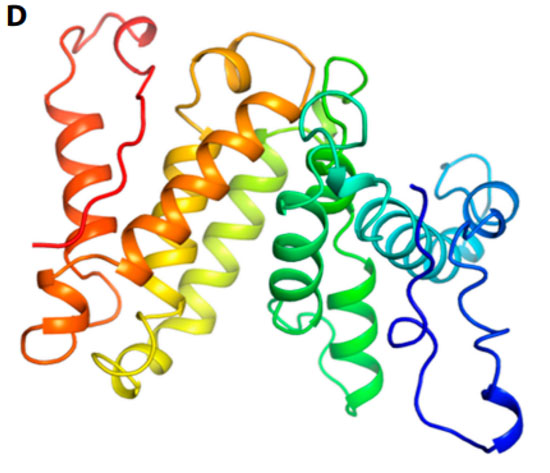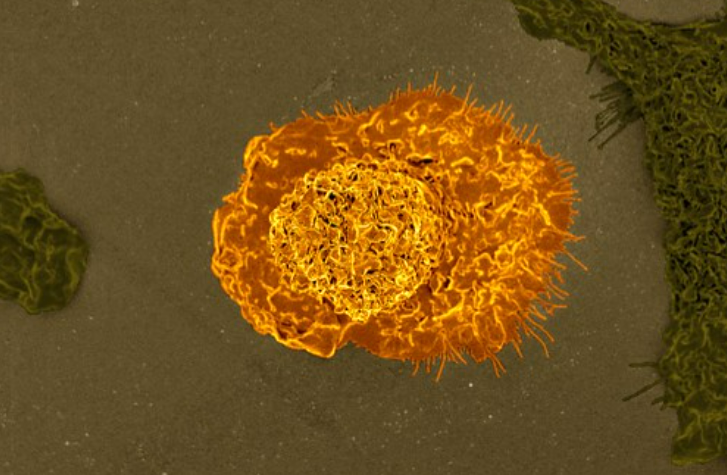Novel Biomimetic Polypeptides Activate Tumor-Infiltrating Macrophages, Offering Hope for Cancer Therapy
17 February 2023
Researchers from China have fused polypeptides with two known protein domains, to create biomimetic polypeptides with beneficial immunomodulatory properties
Macrophages are important cells of the immune system. However, they can function as double-edged swords. While M1-like macrophages arrest the proliferation of cancerous cells, M2-like macrophages do the exact opposite. Interestingly, the desired macrophage type can be activated by modulating the microenvironment within the cells. from China recently designed novel biomimetic polypeptides (BMPPs) that are biocompatible, non-toxic, and tunable, and can activate tumor-infiltrating M1-like macrophages effectively.
Macrophages are highly specialized cells of the immune system that help the body detect and fight deadly pathogens. In particular, M1-like macrophages detect and destroy tumor cells, and release protective chemokines such as interleukin (IL)-6 and tumor-necrosis factor α (TNF α), thus shielding the body from life-threatening pathologies like cancer. However, not all macrophages show anti-tumor potential. Certain types of macrophages, i.e., M2-like macrophages, promote tumor growth. Luckily, the desired macrophage phenotype—a set of traits resulting from the genetic makeup of the macrophage—can be activated by modulating the physiological microenvironment of the cells. Interestingly, multiple nanomaterial-based immunomodulators have been developed in the past, which are known to facilitate the phenotype transition of macrophages from M0 to M1.
Recently, a team of researchers led by Dr. Na Kong and Dr. Yuan Yao from the ShanghaiTech University, China, conducted a study to design novel immunomodulators—biomimetic polypeptides (BMPPs)—that could activate tumor-infiltrating macrophages, i.e., M1-like macrophages. Their study was published on 4 January 2023 in volume 5 of BioDesign Research.
Elaborating on the development of BMPPs, Dr. Yao remarks, “Combining de novo protein design and biosynthesis techniques, we designed a BMPP self-assembled nano-immunomodulator to trigger the activation of a specific macrophage phenotype. It was intended to be made up of (GGSGGPGGGPASAAANSASRATSNSP)n, the RGD motif from collagen, and the IKVAV motif from laminin.”
It is important to note, that previously developed nano-immunomodulators exhibited clear limitations, such as biotoxicity and low biocompatibility.
To overcome such limitations, Dr. Yao and team tried a unique approach. They designed and biosynthesized a biomimetic nanofibril—a highly ordered and stable structure comprising self-assembled repetitive building blocks. To do so, they validated the predicted monomers and higher-order complexes using molecular dynamics simulations—computational studies used to mimic the movement of atoms, molecules, or even large biomolecules such as polypeptides and proteins. The resultant BMPPs specifically harbored the RGD and IKVAV motifs—small nature-conserved regions from proteins—because prior studies have shown that these motifs contain amino acid residues with putative immunomodulatory capabilities.
Following biosynthesis, the team conducted a variety of assays including enzyme-linked immunosorbent assay (ELISA), to test the efficacy of the newly biosynthesized BMPPs. Cell proliferation assays conducted using RAW264.7 cells demonstrated the general biosafety and cytocompatibility of BMPPs. Moreover, results from ELISA revealed that BMPP nano-immunomodulators increased the protein expression levels of IL-6 and TNFα, without affecting the expression levels of IL-10. This clearly demonstrated that M1 macrophage polarization occurred at high BMPP concentrations and that BMPP nano-immunomodulators were presumably activating the M1-like macrophages.
How have these findings contributed to the long-term goals of the research team? “Unlike metal or synthetic polymer-based nanoparticles, these BMPPs exhibit excellent biocompatibility, high efficacy, and precise tunability in immunomodulatory effectiveness. With such encouraging findings, we are motivated to continue our research into cancer immunotherapy applications,” muses a hopeful Dr. Yao.
Reprogramming the tumor microenvironment by activating M1-like macrophages is an excellent way to boost tumor immunotherapy. Kudos to the research team for drawing inspiration from nature and for adding a potent weapon to our cancer-fighting arsenal.
Reference
| Authors | Na Kong1, Hongru Ma2,3, Zhongji Pu2,3, Fengju Wan1, Dongfang Li2, Lei Huang2,3, Jiazhang Lian2,3, Xingxu Huang4,5, Shengjie Ling1,6, Haoran Yu2,3, and Yuan Yao1,2,3 |
| Title of original paper | De Novo Design and Synthesis of Polypeptide Immunomodulators for Resetting Macrophage Polarization |
| Journal | BioDesign Research |
| DOI | https://doi.org/10.34133/bdr.0006 |
| Affiliations | 1School of Physical Science and Technology, ShanghaiTech University,393 Middle Huaxia Road, Shanghai 201210, China. 2ZJU-Hangzhou Global Scientific and Technological Innovation Center, Zhejiang University, Hangzhou 311215, China. 3College of Chemical and Biological Engineering, Zhejiang University, Hangzhou, Zhejiang 310027, China. 4Zhejiang Lab, Hangzhou, Zhejiang 311121, China. 5School of Life Science and Technology, ShanghaiTech University, Shanghai 201210, China. 6Shanghai Clinical Research and Trial Center, Shanghai 201210, China. |
Additional information for EurekAlert
| Latest article publication date | 7 February 2023 |
| Method of research | Experimental study |
| Subject of research | Cells |
| COI statement | The authors declare that they have no competing interests |

Image Title: Novel biomolecular polypeptides (BMPPs) for immunomodulation and macrophage polarization
Image Caption: The tFold-predicted protein structure of a BMPP comprising (GGSGGPGGGPASAAANSASRATSNSP)n, the RGD motif from collagen and the IKVAV motif from laminin, designed by a research team from China. BMPPs can activate the M1 phenotype of macrophages, which can be used for immunotherapy against cancer.
Image Credit: Na Kong from ShanghaiTech University
Image link: https://spj.science.org/cms/10.34133/bdr.0006/asset/1479bf89-5cc0-428e-8740-03944e77532e/assets/graphic/bdr.0006.fig.001.jpg
License Type: CC BY 4.0

Image Title: Novel nano-immunomodulators that facilitate immunomodulation and the polarization of macrophages
Image Caption: Researchers from China designed biomolecular polypeptides (BMPPs) that trigger the transition of the phenotype of macrophages from M0 to M1. M1-like macrophages release chemokines such as IL-6 and TNFα, which exert potent anti-tumor effects.
Image Credit: NIAID from FLICKR
Image Link: https://openverse.org/image/f78989ef-a68d-49c9-aa47-0613d68834cd
License Type: CC BY 2.0


